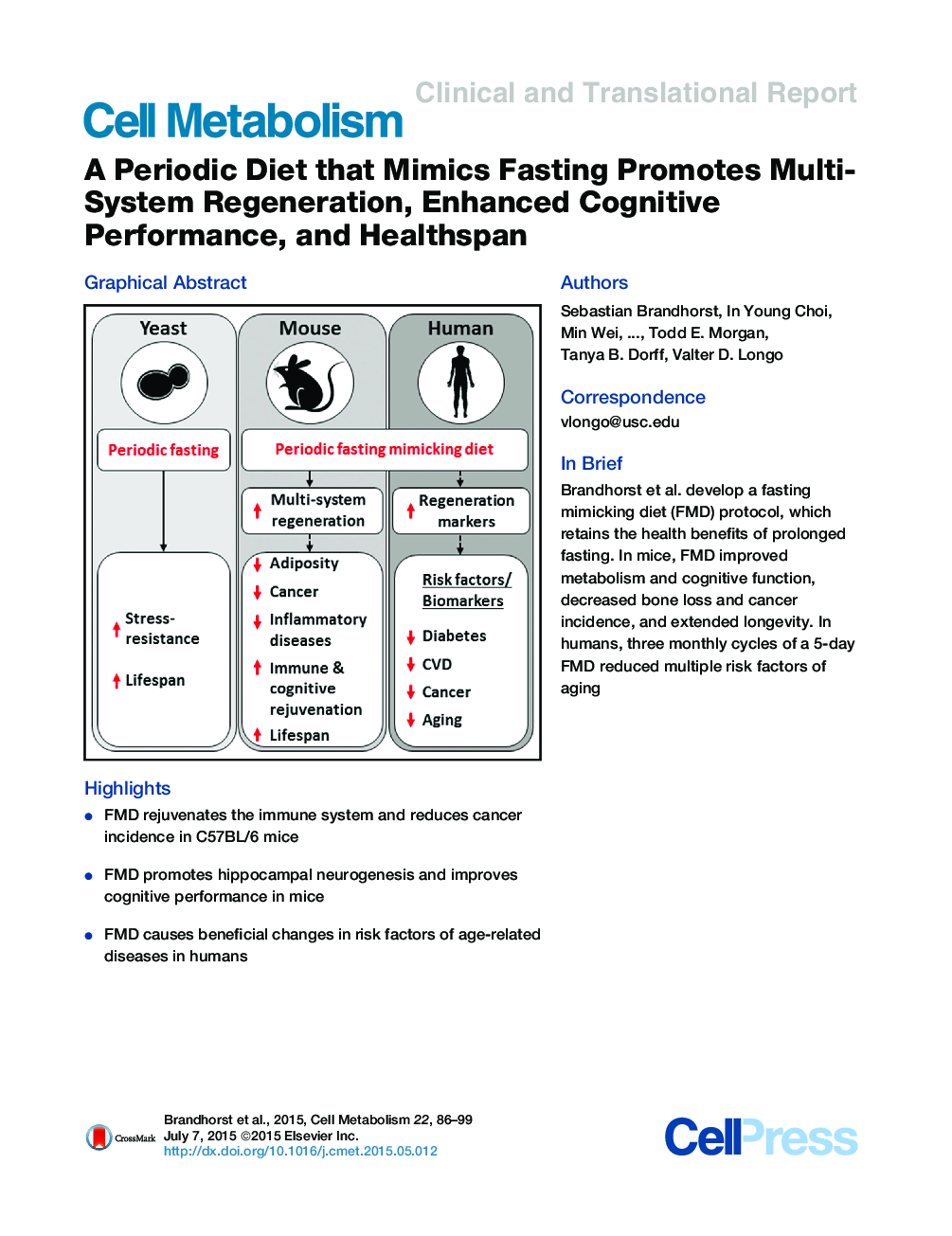| Article ID | Journal | Published Year | Pages | File Type |
|---|---|---|---|---|
| 2792438 | Cell Metabolism | 2015 | 14 Pages |
•FMD rejuvenates the immune system and reduces cancer incidence in C57BL/6 mice•FMD promotes hippocampal neurogenesis and improves cognitive performance in mice•FMD causes beneficial changes in risk factors of age-related diseases in humans
SummaryProlonged fasting (PF) promotes stress resistance, but its effects on longevity are poorly understood. We show that alternating PF and nutrient-rich medium extended yeast lifespan independently of established pro-longevity genes. In mice, 4 days of a diet that mimics fasting (FMD), developed to minimize the burden of PF, decreased the size of multiple organs/systems, an effect followed upon re-feeding by an elevated number of progenitor and stem cells and regeneration. Bi-monthly FMD cycles started at middle age extended longevity, lowered visceral fat, reduced cancer incidence and skin lesions, rejuvenated the immune system, and retarded bone mineral density loss. In old mice, FMD cycles promoted hippocampal neurogenesis, lowered IGF-1 levels and PKA activity, elevated NeuroD1, and improved cognitive performance. In a pilot clinical trial, three FMD cycles decreased risk factors/biomarkers for aging, diabetes, cardiovascular disease, and cancer without major adverse effects, providing support for the use of FMDs to promote healthspan.
Graphical AbstractFigure optionsDownload full-size imageDownload high-quality image (177 K)Download as PowerPoint slide
